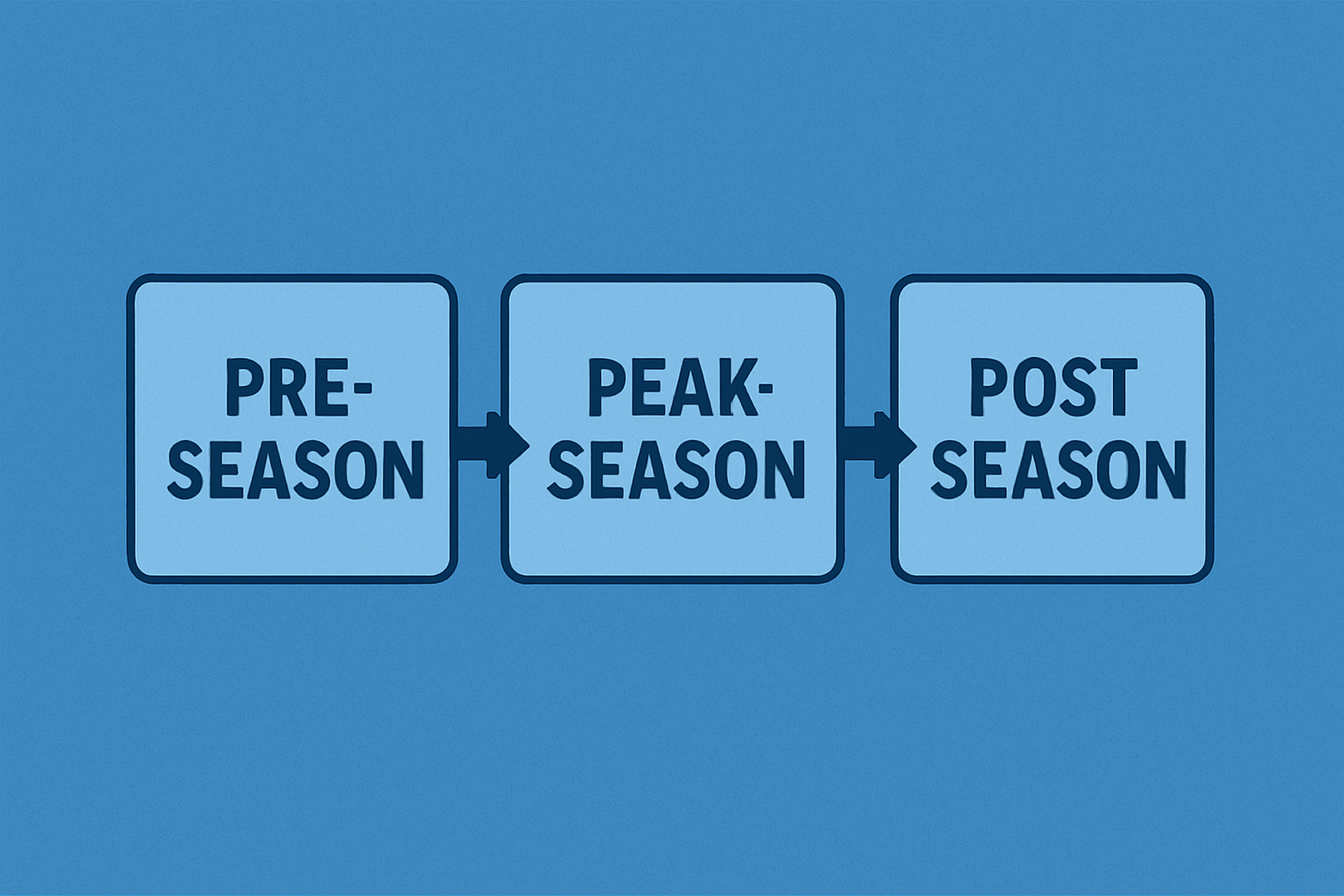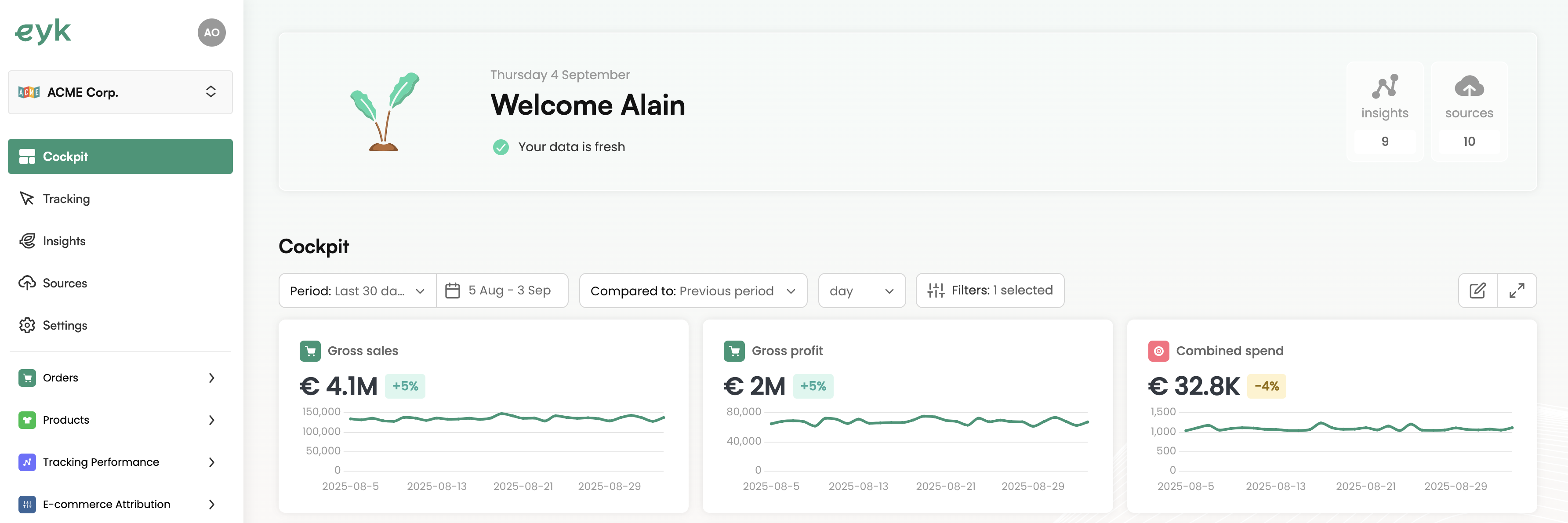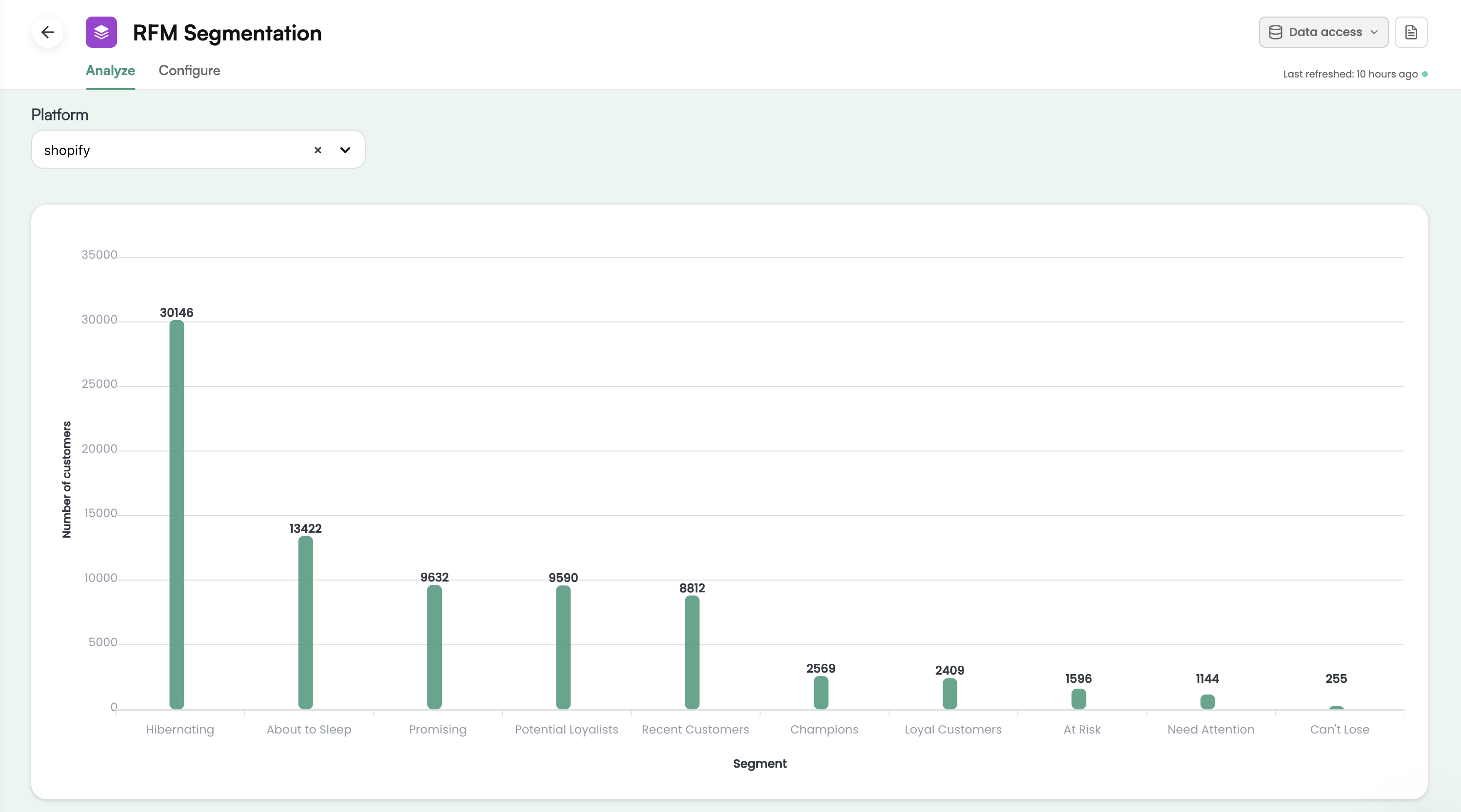

Every e-commerce business has it's ups and downs throughout the year, often influenced by the seasons, big calendar events or any other driver. Planning the right actions for your up- and down seasons will help boost performance and prevent cash issues.
There is one season in which basically all global online sales spikes. That season, is peak-season.
What actually is peak-season?
Generally, people refer to peak-season as the period that spans roughly from mid-November to New Year's day.
This period is packed with culturally relevant holidays and commercially driven sales events like Single's day, Black Friday, Cyber Monday and Christmas.
It is that period of the year in which global online sales spike massively across bascially all verticals. Some data from last year:
Shopify merchants saw $11.5 billion in revenue over BFCM weekend in 2024, a 24 percent YoY rise. FXC Intelligence
For many brands, this weekend accounts for up to 40% of total annual revenue. inboxnewsletter.com
Peak-season is also a bit of a self fulfilling prophecy. Brands are increasingly offering high discounts, spending big on ad platforms and investing in creative advertising. This results in spikes in order and fulfillment volume, which in turn convinces more brands to participate in the 'madness'. By now it has become pretty difficult for brands not to participate, as consumers have a level of expectation around peak-season. In recent years we have seen the rise of several counter movements specifically to Black Friday. Often originated in true and pure convictions, these have also quickly been adopted by brands to increase order volume.
All this speaks to the relevance of Black Friday and peak-season for D2C and e-commerce brands. So if you run a brand, there is no other way than to take this seriously and have an action plan.
But don't worry, we are here to help. Below we provide a simple, three-phase framework to look at peak-season, form a strategy and and plan actions.
The Eyk peak-season framework
At Eyk, we divide peak-season into a simple framework with three actionable phases. Each phase features specific strategic priorities and tactical actions.
The goal of this framework is to provide e-commerce owners & operators with some guidelines for them and their teams to approach this highly impactful season and come out of it with maximum profitable growth.

When?
September-October
Strategic focus
Analyze last year’s most profitable campaigns, products and customers. Find out which combinations drove the strongest conversion and more importantly the highest profit 3, 6 and 12 months down the line.
Additionally, identify last year's 'bleeders'. Campaigns that seemded to perform well on the surface, but ended up bringing in low margin orders from customers who did not return.
This will serve as input for this year's strategy.
Then, strategize your propositions for this year. With every brand and their mother diving onto peak-season, consumers are getting swamped with discounts and offers. You want to stand out while remaining true to yourself. What type of offering matches your brand values and drives conversion? Which creative angles will make you stand out from the mass while simultaneously making people feel connected to your brand long-term?
Tactical actions
Audit your current tracking and reporting setup. Make sure you have a solid first-party tracking solution up and running to assure proper measurement and maximum data sharing options with your ad platforms. Then, brainstorm within your team which Key Performance Metrics (KPI's) are most relevant to track these coming months and get familiar with your baselines on them. The Eyk platform helps you take control over your marketing performance metrics and data if you run your e-commerce brand on Shopify, Magento or Woocommerce.

Finally, start 'soaking the sponge' of brand awareness. Many consumers will hold off on ordering in anticipation of the upcoming peak-season. So dial down on your conversion campaigns, but invest more in brand awareness and storytelling. This will trickle down into peak-season as people will already have your brand and products on their mental radar.
Summary
Pre-season is the time to audit your tracking and reporting and fix any leaking buckets before it's too late. Then, gather your insights, determine your goals and focus and start soeking the brand awareness sponge.
When?
November-December
Strategic focus
In peak-season 2025, the key to success will be: creativity, creativity and creativity.
With the quick rise of AI driven creation, every advertiser now feels like a creative and every creative team feels like they are on steriods. Capturing attention will not be easy this year. But as production efficiency climbs, creativity drops. Meaning there is an opportunity for brands that put in the effort to be truly creative, truly different and truly themselves. It is up to you to steer your team in the right direction here.
Tactical actions
After auditing and optimizing your tracking and reporting setup during pre-season, you want to ensure maximum data capturing during peak-season. Have all your UTM parameters set up properly, use consistent naming conventions across ads, campaigns and channels and adopt a good structure to your promo codes. This will benefit you hugely in phase 3 when you will analyze performance and want to learn your lessons.
This year, have profit on your mind when you optimize your campaigns throughout peak-season. Maybe, rather than going for maximum conversions, aim for maximum profit. Keep track of blended CPA and contribution margin, pause low profit ads and push high margin products. This way, you will come out of peak-season not only with a lot of new customers, but with the bandwidth to invest in those new relationships and connect them to your brand long-term.
Summary
Peak-season is all about creativity and effort. It's go time and while you will be optimizing along the way, there is also a sense of keeping your head down, not getting distracted and generating output.
When?
January-February
Strategic focus
Now is the time to focus on your team. Celebrate successes, serve constructive feedback and learn joint lessons. Also, invest in their and your wellness and inspiration. In Dutch we say: "de boog kan niet altijd gespannen zijn" which translates freely to "the bow can't always be stringed". Basically, you need to make sure your team comes out of this period stronger and more motivated, not less.
Tactical actions
Reduce ad and offer intensity. Consumers are quite literally 'order fatigued' and you should adapt to that. Maintain brand awareness efforts and baseline retargeting, but run less conversion driven campaigns.
Analyze the sh*t out of your 'last 90 days' data! Look into which channels/campaigns/ads really hit it home with conversions, which products drove profit and start segmenting your new customers so you can keep track off their future buying behaviour.

Summary
Now that the big rush is over, it's time to reflect, analyze and learn. What can you do to maximize value from your recently acquired new customers and which lessons learned can you implement to do better next year?
In the end, one peak-season will not make or break your brand. But it would be foolish to not take it very seriously as, at least by now, it comes from true expectations of consumers.
Make sure you leverage this 'pressure cooker' period to experiment and learn, acquire new customers and have a little fun along the way. All while staying true to your brand vision and core beliefs.
If you manage to do that, this years peak-season might just become the start of something beautiful.
Ready to Make Your Data Work for You?
Eyk turns your customer data into your most powerful growth lever, automatically.
👉 Book a demo or connect your store in minutes during a free trial to start driving acquisition, retention and profit.











Get all your e-commerce metrics together in one overview today.

